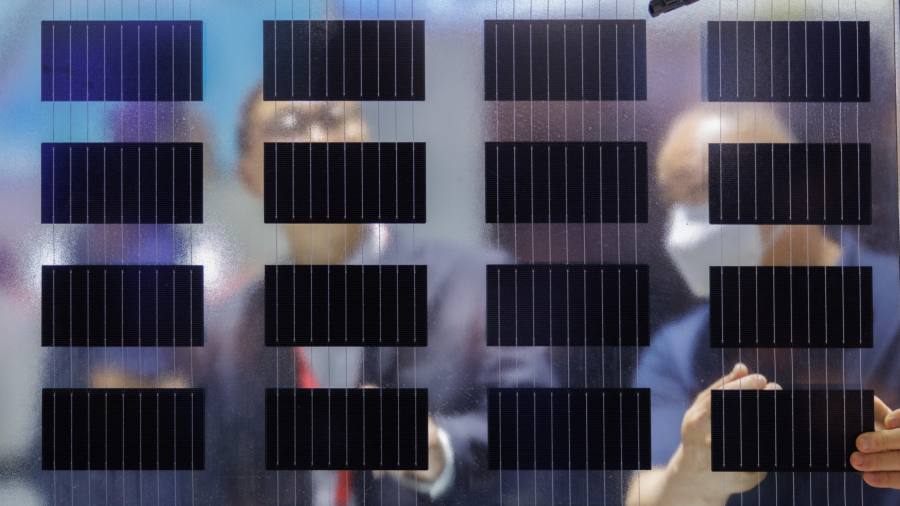Europe’s green transition will be impossible without China, the Dutch trade minister has warned, as the EU tries to untangle some of its economic dependence on the Asian powerhouse.
Western economies face the dilemma of reducing their reliance on Chinese supply chains while overseeing a rise in domestic demand for clean technology such as solar power and car batteries, an industry dominated by companies based in China. While the US is decoupling from China, Europe has so far proceeded with more caution, as its economy is more dependent on Asia and is already reeling from the bloc’s stop on energy and raw materials imports from Russia following Vladimir Putin’s invasion of Ukraine.
“They are doing a lot on [research and development] and it would really be a shame if we decoupled fully from China,” Liesje Schreinemacher told the Financial Times. The minister said the Netherlands had a “strong trade relationship with China” and that “we need each other when it comes to making our economies more sustainable and the green transition”.
The G7 leaders of the world’s largest economies last week agreed to “de-risk” their relationship with China by seeking to import more critical raw materials from other sources and by building domestic clean tech industries.
Schreinemacher, who will visit China before the end of the year with a trade delegation, said that “decreasing our strategic dependencies does not mean we should stop trade fully as long as we are diversifying our sources and diversifying our value chains”.
The EU in March set out plans to target more domestic mining and processing of critical materials. Next month European Commission president Ursula von der Leyen will unveil an economic security strategy, despite misgivings in some member states that the bloc is taking a protectionist turn. China controls almost all of the world’s solar power supply chain and much of global processing capacity for minerals crucial to the green transition.
Schreinemacher said the EU should think carefully before screening European investment in China’s cutting-edge technologies, an issue that was also discussed by the G7 leaders this month. She described the so-called outbound investment screening as a “very heavy instrument” to use to protect the bloc’s economic interests. “We think it’s very important that we know exactly what the goal of it is and how it can be executed,” she said.
She also stressed that economic security powers remained in the hands of national governments, in reference to a push by Washington for Europe to mirror its aggressive stance in limiting trade links with China.
US and EU officials including secretary of state Antony Blinken will discuss outbound investment screening and co-ordinated export controls at a meeting on May 31, according to a draft statement seen by the FT. The discussions will seek to increase “our understanding of the policy tools available to address national security risks in a holistic manner”, the text reads.
The Hague and Tokyo have joined Washington in banning the most sensitive silicon chipmaking technology from export to China, particularly as Beijing has ramped up pressure on Taiwan, the global hub for manufacturing semiconductors.
The Dutch government has announced that the most advanced chipmaking machines would require an export licence, without specifying which models. Schreinemacher said she would outline more details “by the summer”.
The curbs hit Netherlands-based ASML, the only producer of advanced machines in the EU. But Schreinemacher wants Brussels to endorse the measures so that other member states can follow suit and pledge not to re-export Dutch made equipment.
“It would be more of a show of support for these measures,” she said.
China has hit back at the US by banning the use of chips made by Micron in infrastructure projects.
Schreinemacher declined to speculate on whether Dutch companies could face similar action after Beijing threatened retaliation.
Additional reporting by Javier Espinosa in Brussels
Read the full article here




